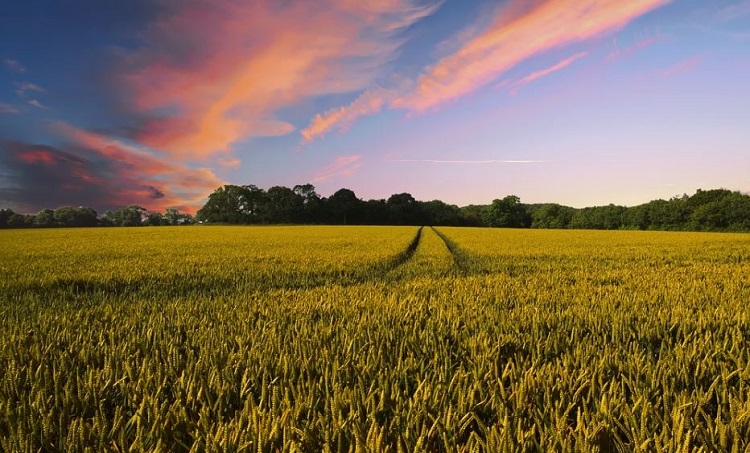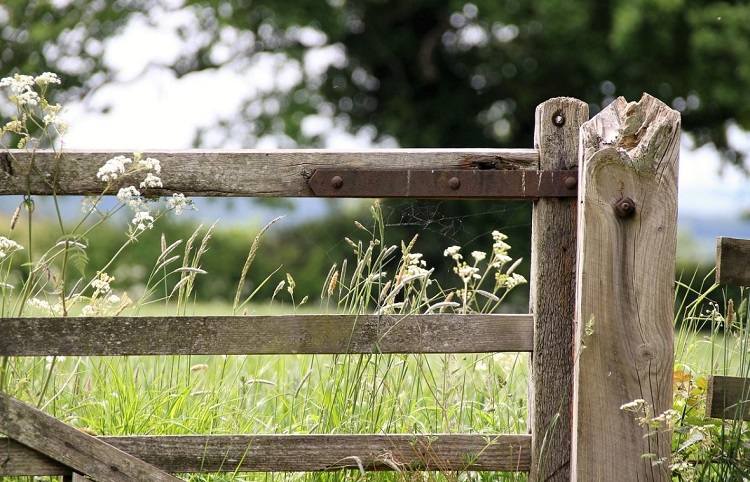How Much Income From Leasing Farmland?
Being a landowner can be an awesome privilege or a tough burden at times. But if you’re one of the many people in our country who inherited the family farm years ago and is looking at retirement or a change of pace, it can be a bittersweet dilemma. How could you possibly sell the farm you’ve lived on with all of its family history? Then again, how could you continue doing what you are if you want to change jobs or move into retirement? Here’s how leasing farmland for continued crop or animal production might be the sweet spot you’ve been looking for. Additionally, there are some rough calculations for farmland rental rates to give you an idea of how much income you could earn.
Why Sell the Farm?
As we mentioned, there are several reasons you might be looking at selling the farm altogether and moving on with life. Maybe you suddenly inherited it from relatives and have no desire to farm it yourself, but there’s still a part of you that doesn’t want to give it up. Or perhaps you’ve farmed it your whole life and have loved (almost) every minute of it, but it’s just time to call it quits and move into your retirement life. Maybe you were only ever partially serious about farming on your land and just didn’t have enough time to commit to making it work out financially. These are all legitimate reasons to move on and nobody would fault you for selling it.
But there are a lot of benefits from leasing farmland to other farmers. It might surprise you, but there are almost always people looking for farmland for lease, pasture land for lease, or cattle grazing land for lease. Why? It’s a mutually beneficial situation. They get access to much more land for growing corn or grazing cattle without having to pay a huge sum to buy it or having to pay property taxes on it. Leasing land is also much more fluid, so they’re not constrained when they choose to stop farming themselves. As far as the benefits to you, you don’t have to sell the family property after all and can continue to earn a farmland rental income from it at the same time. That way, you can still get out and enjoy the property yourself once in a while.

Leasing Farmland – Logistics and Income
So now let’s look at the details as it relates to leasing farmland and what exactly that could mean for you. Before you ever simply agree to have someone lease your land on a firm handshake alone, stop for a moment. It’s great to trust your neighbors, but it’s not worth the risk of miscommunication that could result from it. These kinds of issues can turn great relationships into bitter feuds when in reality they could be stopped by simply developing a plan/agreement first. Make sure you develop a farmland lease form or lease agreement with them that lists out every possible detail (e.g., specific land uses and boundaries of the land to be used, specific dates the lease applies, farmland lease prices, who will have access to the land, etc.). If everything is spelled out in detail, it’s easy to avoid miscommunications.
Rental Income
As far as your farm rental income is concerned, there are a few ways to estimate some realistic land leasing prices. The USDA county average rental rate is a useful tool to start with. The USDA tracks cash rents for irrigated and non-irrigated cropland and pastureland. The average rate to rent irrigated and non-irrigated cropland in 2018 was $215 and $125 per acre, respectively. The average rate to rent pastureland was $12.50 per acre in 2018. These cropland rental rates and pasture lease rates vary greatly by state, with Iowa and Illinois near the top of the list (not surprising). However, using these farmland lease rates as a go-by, you can estimate your potential income by multiplying them by the number of acres you would rent out. For example, if you were to rent out 80 acres of non-irrigated cropland at the average rental rate of $125/acre, that would be a neat $10,000 of income. Granted, that money would then be taxable, and you would need to fill out Form 4835 with the IRS to list your farm rental income. But for doing nothing yourself on the land anymore, that’s not a bad deal, is it?
Bonus Features
Does your property still have other facilities or amenities – such as barns, stalls, tractors, equipment, or fencing – that could be used by the tenant? All other things being equal, almost any farmer would rather choose to lease a place with existing fencing or outbuildings to use while on the property versus a property without them. For example, if they will be grazing animals in a pasture, it’s a big expense (and hassle) to have to fence it themselves and it might not be worth it. But if there are still existing fences in place, that would make it much easier for them to say yes to leasing farmland from you. Likewise, if there are outbuildings for them to store various planting equipment (which can be regulated by you in the lease agreement to avoid any unnecessary clutter) or actual equipment they could use, that would be a major selling point for you to earn a higher income. Think about these things as you market your property.

How to Double Down
Interested in earning income on two different leases at the same time? Well, you can’t lease the same land to two different farmers. But what about leasing farmland to a farmer and a hunter? As long as there’s no agreement for the farmer to use your property for recreational/hunting purposes, then this is a very real option. Farms usually hold a lot of wildlife, and hunters are always looking for a good place to hunt. As long as you have a clear agreement with them and are up front with both parties about the situation, it should work out. We can help you list your property for hunting, with exposure to a lot of people and help throughout the process. We even provide liability insurance with our lease agreements to keep all parties protected.
To recap, leasing farmland to someone else allows you to keep your land, help it pay for itself, and maybe even earn you an additional side income. And by combining the farming lease with a hunting lease, your earning potential increases with it. So if leasing your farm sounds like a good option for you, reach out to us for more information about the process.
GET INFO ABOUT LEASING THE HUNTING RIGHTS TO YOUR PROPERTY
[av_sidebar widget_area=’SRM-CAPTCHA-FORM’ av_uid=’av-2q9txt’]

Nice report.
I am looking for land to lease for cattle and horses near Canton, GA
Looking for pasture grazing for cattle van zandt county
and eastern Kaufman County
I would like to lease 5 acres of my property in Joelton, TN. There is a well on the property.
I am looking to lease cattle ranch in Texas Oklahoma area long term can u help me?
are these rates per month?
Hi, Nice article. The $215 rate you mentioned for leasing cropland, is it per month or per yer for an acre.
I am looking to lease land in BRANCHVILLE, SC before I decide to move back. Most of the land is farmland.
Jennifer- here is the link for our leases in South Carolina – https://www.basecampleasing.com/searchstates/south_carolina_map.htm. If you decide you want to see some of our new release properties sooner, you can look into becoming a member to see those properties before they are released to the general public and can also receive discounts on many outdoor brands!
i have 110 acres of plain clear-cut logged farm land mt holly rdand va rt .202, 2 years, i getting sumps removed and clear acreage for farming